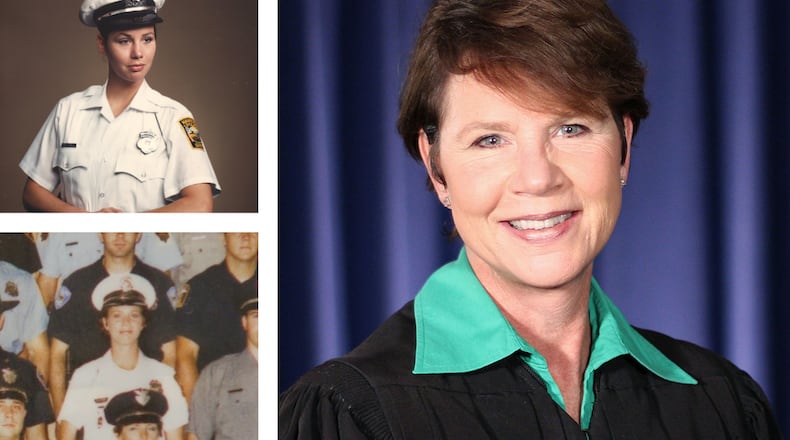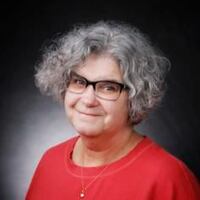Kennedy grew up in Colerain Twp. about five miles from the Fairfield border, graduating from Northwest High School where she was blessed with a mentor — second to her parents — who planted a seed to a path she would take.
A high school teacher stopped Kennedy after a general law class and told her, “I know you want to be a police officer, but ... you could be a lawyer and a judge someday.”
It response Kennedy said, “I laughed. I said it is not really possible for someone like me. Saw socio-economic barriers, educational barriers. I really thought lawyers were generational. And I never thought I was smart enough to be a lawyer.”
At her mother’s urging as a fall back if she didn’t like criminal justice, Kennedy received a bachelor’s degree in social work from the University of Cincinnati in 1984. Kennedy said she too knew the degree could be used in many fields, including policing.
After looking for a year, Kennedy landed a job with the Hamilton Police Department in May 1985 and her career in criminal justice was realized.
Kennedy went through training at the Ohio State Patrol police academy and start her three-year career with the department, patrolling the West End, the Lindenwald neighborhood and the city’s North End.
Law enforcement was “the great equalizer” for Kennedy. She said she was exposed to many truths in the world, including not everyone who became a lawyer come from a family legacy.
“There were a lot of men and women just like me,” Kennedy said.
From law enforcement to law school
A day on the witness stand during questioning by a less-skilled attorney is when Kennedy said she had an epiphany, deciding on-the-spot to go to law school.
“I was sitting on the witness stand ... I was being cross-examined. I literally had an epiphany right there. I was like wow, man, that guy made it through law school. I know I can, I am a heck of a lot smarter than he is. I could actually ask a compelling question here,” Kennedy said, adding she called the University of Cincinnati that night wanting to know how to get into law school.
Kennedy worked as a civilian assistant to the Hamilton police chief while in law school and was a clerk for then-attorney Matthew Crehan, who became a longtime common pleas judge. But her time carrying a badge changed the way she looks at the law and life.
“You carry that experience, which is hard to describe to people. My phraseology is you never look at the world the same when you have looked at it through the windshield of a cruiser,” Kennedy said. “You learn a lot about yourself, but you also learn patience; being able to work through difficult situations. Taught me not to be quick to judgement. I just think of all the decision I made in law enforcement, whether to stop, whether to search or frisk, arrest.”
Kennedy said she was “very lucky in some very bad situations.”
Crehan, now a retired common pleas judge, was the person who pushed Kennedy to seek a judgeship, even the supreme court, and encouraged her to get involved in county political organizations and working on campaigns. All the while Kennedy was a defense attorney, litigating cases throughout the county.
Kennedy served as Butler County Common Pleas domestic relations judge beginning in 1999. From 2005 until December of 2012, Kennedy was the administrative judge of that division.
An admitted “homebody,” Kennedy said she would rather be reading a book and gardening, but her quest for election to a statewide judgeship developed her other personality, making her step outside her comfort zone to crisscross the state during political campaigns.
“It is a learned skill,” Kennedy said. And she believes she is better for it.
“I am a serial hugger, so that lends itself to campaigning. I loved meeting people. The number of friends I now have across the state and they are amazing people.”
Kennedy said she has been blessed to have mentors put in her path each step of the way and she often tells students during speaking engagements that she see her life as a Robert Frost poem. She never wanted to wonder “what if.”
“I look at my life as the Robert Frost poem, ‘The Road Not Taken.’ Because you can see your path very clearly and all of a sudden there is an opportunity that comes up and you can’t really see down that. So I look at every single one of those journeys as one of those opportunities. And there was always someone there helping me blaze that trail.”
About the Author

